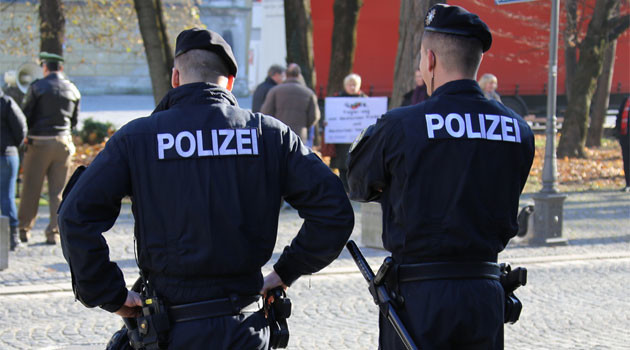 WASHINGTON, Feb. 3 (Xinhua) — U.S. President Donald Trump’s executive order to temporarily ban people from seven Middle Eastern and North American countries from entering the United States has met legal challenges nationwide.
WASHINGTON, Feb. 3 (Xinhua) — U.S. President Donald Trump’s executive order to temporarily ban people from seven Middle Eastern and North American countries from entering the United States has met legal challenges nationwide.
Under the immigration ban Trump signed on Jan. 27, refugees from all over the world will be suspended U.S. entry for 120 days while all immigrants from so-called “countries with terrorism concerns” will be suspended for 90 days. Countries included in the ban are Iraq, Syria, Iran, Sudan, Libya, Somalia and Yemen.
James Robart, a federal judge in Seattle, on Friday granted a nationwide temporary restraining order, after the states of Washington and Minnesota sued for blocking Trump’s travel ban.
The executive order “adversely affects the states’ residents in areas of employment, education, business, family relations and freedom to travel,” Robart said in his ruling issued Friday afternoon.
“The executive order effectively mandates that the states engage in discrimination based on national origin and/or religion, thereby rescinding the states’ historic protection of civil rights and religious freedom,” said Attorney General Bob Ferguson, who filed the lawsuit, calling the order a violation of the U.S. Constitution.
“It’s a wonderful day for the rule of law in this country,” Washington State Solicitor General Noah Purcell said.
Washington state-based enterprises Amazon, Expedia and Microsoft support the restraining order, saying Trump’s travel ban is hurting their operations.
The White House said Friday night the U.S. Justice Department will seek an emergency stay of Trump’s executive order, saying it is “lawful and appropriate.”
“The president’s order is intended to protect the homeland and he has the constitutional authority and responsibility to protect the American people,” the White House said in a statement.
Also on Friday in Virginia, U.S. District Judge Leonie Brinkema ordered the federal government to give the state a list by Thursday of “all persons who have been denied entry to or removed from the United States.”
The state of Hawaii on Friday joined the challenges to Trump administration’s anti-immigrant policies, filing a lawsuit alleging that the order is unconstitutional and asking the court to block the order across the country.
Earlier Friday, a federal judge in Boston, Massachusetts, has declined to renew an order prohibiting the detention or removal of persons under Trump’s executive order. The temporary injunction granted on Jan. 29 will expire as scheduled on Sunday.
Meanwhile, in New York, U.S. District Judge Carol Amon on Thursday extended a temporary restraining order that would expire on Feb. 11 to Feb. 21 so that the government and civil groups can have more time to file paperwork. But the Justice Department said it will ask Amon to reject the case.
In Detroit, Michigan, the Arab-American Civil Rights League filed a suit this week saying Trump’s order is unconstitutional and targets immigrant communities.
Victoria Roberts, a federal judge in Detroit, on Friday released a restraining order saying U.S. green-card holders should not be affected by the travel ban.
In California, three university students on Thursday filed a suit in San Francisco, saying the ban is unconstitutional and has created hardships for the students.
Under Trump’s order, close to 60,000 visas have been canceled, according to the U.S. State Department.
Last Sunday, tens of thousands of protesters rallied before the White House, at more than 30 U.S. airports, and in central downtown of big cities including Boston, Philadelphia, Atlanta, Los Angeles, Seattle and Chicago.













